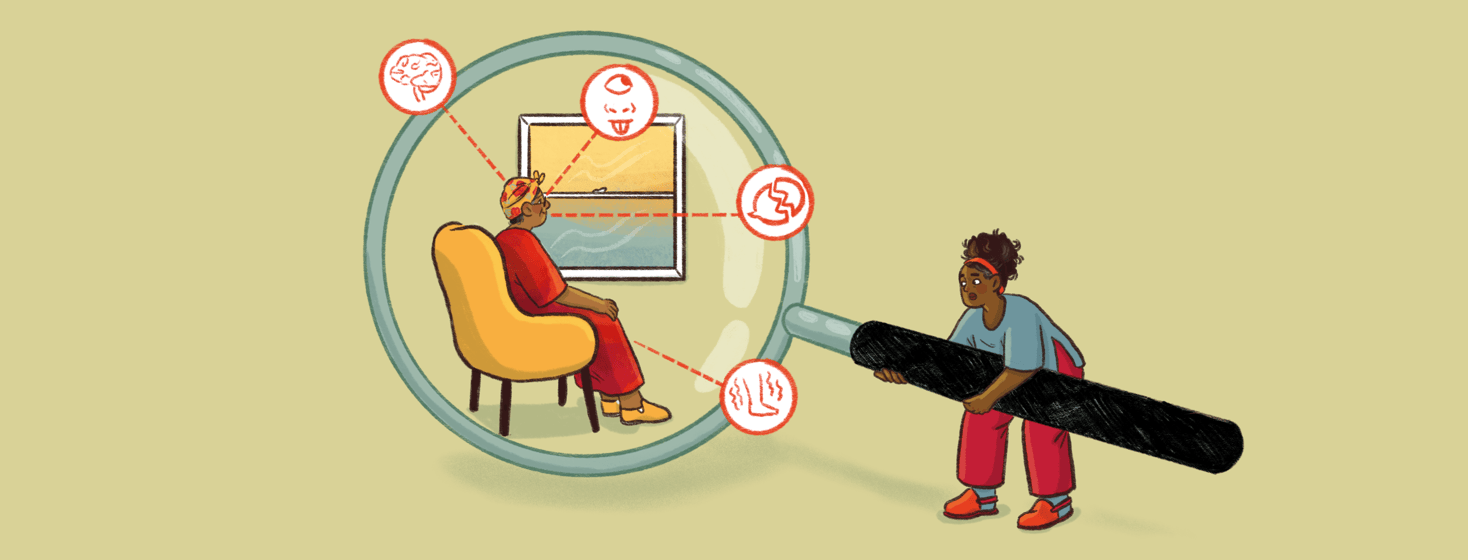Watching My Loved Ones' Experience: The A's of Alzheimer's Disease
My journey with Alzheimer's disease has been through the eyes of a healthcare professional and a caregiver to both my parents. Through my years of experience, I have witnessed firsthand the devastation it brings to a person's mind, body, sensory perception, social life, and behaviors. These disease changes, in turn, severely impact the lives of not only the person but also their loved ones.
The A's of Alzheimer's disease
"The A's of Alzheimer's disease" refers to amnesia, aphasia, apraxia, and agnosia. Understanding these 4 things helped me understand what was happening to my parents as the disease affected different areas of their brains. Our brain is such a magnificent and complex organ in our body. But when damage occurs to areas of the brain, the impacts of that damage are often complex and life-changing. The A's of Alzheimer's disease describes the thinking (cognitive) deficits that occur as a direct result of the disease process.
Amnesia: loss of memory
Amnesia is a hallmark sign that someone may have Alzheimer's disease. In my parents, amnesia started as "forgetfulness." This progressed into their inability to remember my name, manage their bills, or shower.1
My parents' long-term memory remained mostly intact. But as the disease progressed, I saw a rapid decline in their short-term memory. I remember visiting my mom an hour after she ate breakfast. Each time, she could not recall what she had just eaten.
Aphasia: speech and language impairments
There are many types of aphasia. Communication deficits started so innocently with my parents. An occasional inability to recall a word. Over time, aphasia leads to a complete inability to form, understand, or express themselves verbally or in writing.2
Apraxia: loss of purposeful movement
Alzheimer's disease affects the brain's ability to carry out a task. It may appear that the person does not want to perform the activity. But it is not a lack of motivation. Apraxia prevents the person from carrying out the task.3
My parents' apraxia greatly impacted their ability to perform multistep daily living tasks. These ranged from an inability to use a fork to requiring much assistance dressing or bathing. As the disease progressed, it affected their ability to talk, walk, and swallow.
Agnosia: loss of ability to interpret sensations
Agnosia means that a person's vision, sense of smell, touch, and taste may be intact, but the person is unable to recognize or interpret those senses. People with Alzheimer's often have issues interpreting the geometric shapes of familiar objects.4
Many people with Alzheimer's disease also have difficulty recognizing and interpreting sensory information that their bladder is full. They cannot recognize that sensation or feeling we get. I know I experienced this with my loved ones. And it led to an increased number of urinary accidents. Please note this is not the only potential cause for frequent urinary accidents. But it can be a factor.4
I also sadly saw both of my parents' inability to interpret and recognize visual and auditory information. This is often why those with Alzheimer's disease can have intact vision and hearing, but not recognize familiar faces or voices from their own family members.
Awareness of the A's of Alzheimer's disease
I hope that increased awareness of the A's of Alzheimer's disease will aid in understanding the complexity of this disease. That being said, as a caretaker for both of my parents – it can be exhausting.
So many times, I had to step back, take a breath, and recognize that Alzheimer's is a neurologic disease that attacks the brain. What looks like poor behavior or resistance to a task may not be the case.

Join the conversation